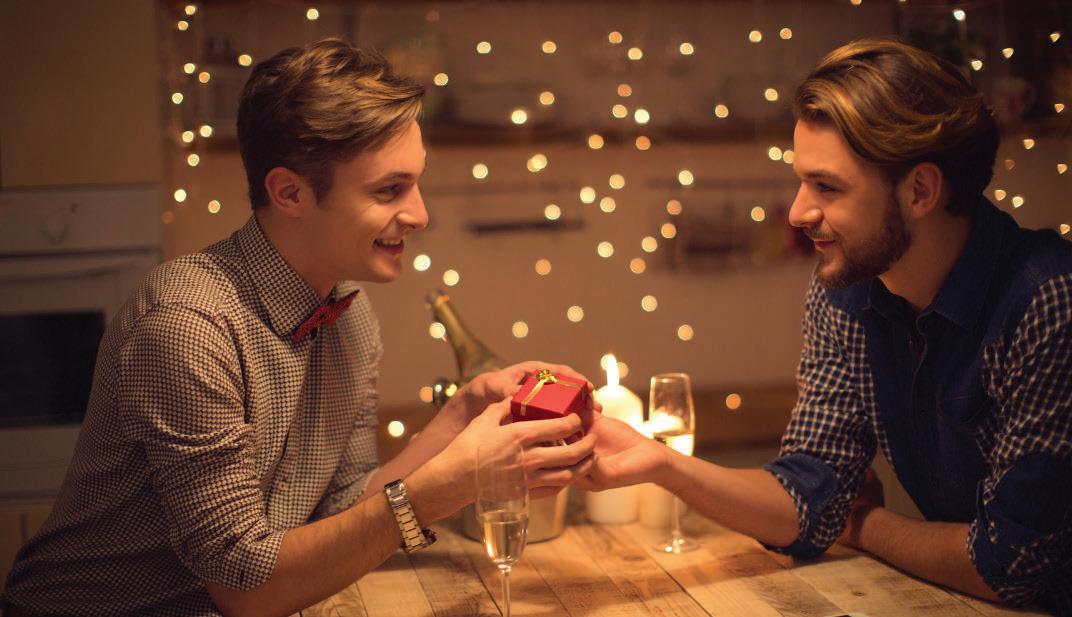
2 minute read
Love in the Time of COVID
For years, as I surveyed my bevy of amazingly talented, successful, gorgeous, kindhearted friends, it seemed crazy to me that so many of them remained single despite expressing the earnest desire to find a partner. Then as the pandemic set in, as if by magic, one after another after another the “Guess what? I’ve got a boyfriend!” texts started coming in. I thought to myself, “How curious?! I wonder why that is.” The only conclusion I can come to is that social distancing and a slower pace of life caused us to limit our interactions to fewer people, in turn enabling us to reach deeper levels of intimacy with individual souls. I admit this is only anecdotal musing and not terribly scientific, but I think there may be some truth to it.
There is, however, some neuroscience behind why the chaotic nature of the dating world over the last decade, fueled largely by its increased reliance on Grindr, Scruff, etc., collectively referred to as “The Apps,” may well be damaging our ability to form solid long-lasting relationships, contrary to their intended purpose. The digital world, especially as it exists in our smartphones, is rewiring our brains. The sights, sounds, and haptics of the apps release dopamine and other chemicals into the brain which we come to crave over time. FOMO (the fear of missing out) drives us to open the apps quickly whenever we receive a push notification and it takes our attention away from whatever we were doing before. That process damages our attentional and relational depth and causes our energies to be spread thinly over a great many things and relationships instead. In other words, it causes us to be better at maintaining lots of casual partners, but makes it less likely we will enter deeply with a single individual. Brain imaging has actually shown this to be very true. The neural chains that govern our ability to multitask have gotten much stronger, and the neural chains that control our ability to pay attention to a single person, task, or idea have grown substantially weaker.
So, what can we do? I recommend two things. First, consider turning off the push notifications on the apps. Then you will have control over when and how you use them rather than the apps controlling you. Remember, the apps’ only real goal is to get your subscription revenues and serve you paid advertising. The more you use it, the more money they make, so they want you checking them all day long. The second thing I recommend is at least ten minutes (preferably 20) of quiet meditation or centering prayer per day. Study after study shows that slowing down, unplugging, and focusing in a meditative state works wonders for our ability to maintain attentional control, reduces anxiety, boosts our immune system, and contributes to our overall wellness. Since we’re all supposed to be isolating anyway, there is no better time to start incorporating this practice into our lives.
Perhaps if we take time each day to detach from our digital tether and the chaos energy that comes with it, we can finally focus ourselves on the people and things we truly desire.
Fr. Rich Vitale is the Associate Pastor of Community Outreach of Holy Angels National Catholic Church. He lives in Wilton Manors, FL, with his husband, Sean, and his Cat, Miss Kitty. Follow Him on Instagram @AModernSpirit or on Facebook www.Facebook.com/Richard.Vitale1.










